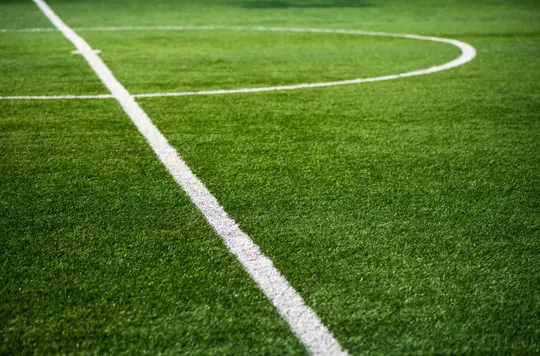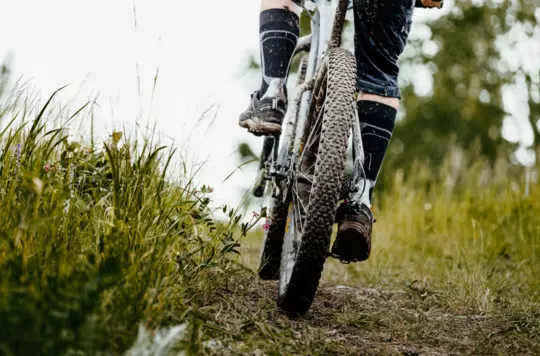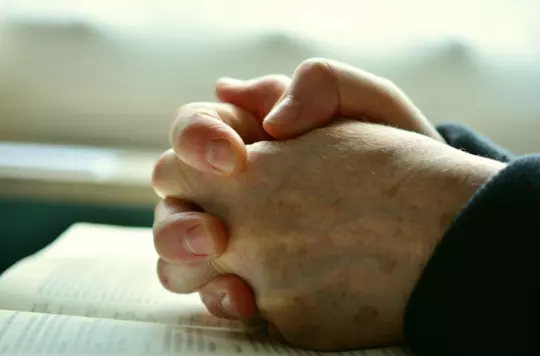Explore faith
Sport and faith
Sport has the power to strengthen our body, mind and spirit.
Whether it's an early morning jog or a weekend match, sport offers more than just physical challenge. We believe that exercise and faith intersect, helping us grow in connection with each other and with God while supporting our physical, mental and spiritual wellbeing.
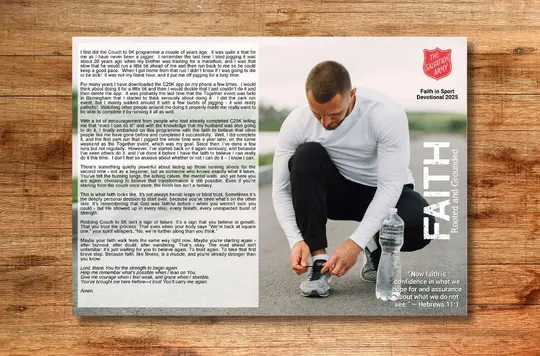
Faith in Sport Reflection
Download the transcript for this special devotional episode of Faith in Sport.
I first did the Couch to 5K programme a couple of years ago. It was quite a feat for me as I have never been a jogger. I remember the last time I tried jogging it was about 20 years ago when my brother was training for a marathon, and I was that slow that he would run a little bit ahead of me and then run back to me so he could keep a good pace.
When I got home from that run I didn’t know if I was going to die or be sick! It was not my finest hour, and it put me off jogging for a long time.
For many years I have downloaded the C25K app on my phone a few times. I would think about doing it for a little bit and then I would decide that I just couldn’t do it and then delete the app.
It was probably the last time that the Together event was held in Birmingham that I started to think seriously about doing it. I did the park run event, but I mainly walked around it with a few bursts of jogging - it was really pathetic!
Watching other people around me doing it properly made me really want to be able to complete it by running it all as well.
With a lot of encouragement from people who had already completed C25K telling me that “even I can do it!” and with the knowledge that my husband was also going to do it, I finally embarked on this programme with the faith to believe that other people like me have gone before and completed it successfully.
Well, I did complete it, and the first park run that I jogged the whole time was a year later, on the same weekend as the Together event, which was my goal. Since then, I’ve done a few runs but not regularly.
However, I’ve started back on it again seriously, and because I’ve seen others do it, and I’ve done it before I have the faith to believe I can really do it this time.
I don’t feel so anxious about whether or not I can do it – I know I can. There’s something quietly powerful about lacing up those running shoes for the second time - not as a beginner, but as someone who knows exactly what it takes.
You’ve felt the burning lungs, the aching calves, the mental walls, and yet here you are again, choosing to believe that transformation is still possible. Even if you're starting from the couch once more, the finish line isn’t a fantasy.
This is what faith looks like. It's not always heroic leaps or blind trust. Sometimes it’s the deeply personal decision to start over, because you’ve seen what’s on the other side. It’s remembering that God was faithful before - when you weren’t sure you could - but He showed up in every step, every breath, every unexpected burst of strength.
Redoing Couch to 5K isn’t a sign of failure. It’s a sign that you believe in growth. That you trust the process. That even when your body says “We’re back at square one,” your spirit whispers, “No, we’re further along than you think.”
Maybe your faith walk feels the same way right now. Maybe you're starting again - after burnout, after doubt, after wandering. That’s okay. The road ahead isn’t unfamiliar; it’s just waiting for you to believe again. To trust again. To take that first brave step. Because faith, like fitness, is a muscle, and you're already stronger than you know.
Lord, thank You for the strength to begin again.
Help me remember what’s possible when I lean on You.
Give me courage when I feel weak, and grace when I stumble.
You’ve brought me here before—I trust You’ll carry me again.
Amen.
I enjoy a round of golf every now and then. Alas, I’m not a regular player and would probably describe myself as a ‘hacker’. I have the highest handicap possible and for every good shot I hit, it will be matched by a poor one. Yet each time I set out for the first tee I am filled with hope that I will manage the 18 holes in less than 100 shots.
I think every golfer plays golf with hope in their bag. They hope that when the wayward shot is hit, it will miss the rough, bunker, trees or water and land favourably with a good lie ready for the next shot. Hitting poor shots is a usual part of any golfers round of golf.
It even happens to the best players in the world. When a wayward shot is hit, all golfers hope for a great outcome.
But is hope just wishful thinking? When chasing the dream of golf’s ‘grand slam’ of major victories, each year Rory McIlroy would head towards the Augusta National course for the US Masters hoping that year would be the year, and for many years this was not the case.
His response to missing out? He would go back to the practice ground to try to improve all aspects of his game. Wishful thinking did not win him the Masters this year, though I would like to think that hope did.
For me hope acts as a steady light that energises and restores us. Hope can reframe our perspective and give us the spiritual, mental, and physical space to imagine renewal and new momentum. Hope sends us back to the practice range to be better and see positive things in the future.
Hope acts as motivation to move us forward, even in difficult days; it inspires action and a belief that things can and will improve. Hope gives resilience so that we can see setbacks as challenges not threats. Hope brings renewal, bringing fresh perspective and regeneration.
Hope leads to better well-being as it provides meaning and joy to areas of life. When Paul wrote to the Romans, he prayed, “May the God of hope fill you with all joy and peace as you trust in him …” Paul knew that Christian hope was crucial for all believers for Christian hope is a confident expectation rooted in God’s promises and character.
With this hope believers are empowered to live a life transformed by faith. Christian hope strengthens us to face trials with courage and positivity. Christian hope gives perspective and desire to allow us to find meaning for life and show us God’s purpose for us individually, and this impacts in the present life not just the future.
Hope empowers us to embrace change, overcome failings, and strive for spiritual growth so that we can live like Christ and reflect Him in our world. Hope trusts that God is faithful and will fulfil His promises, and in a world which can often seem hopeless, it pushes us on through discouragement and disillusionment to remind us of God’s presence with us now.
How does hope impact our daily lives, relationships, and decision-making? How can we cultivate hope in ourselves and others?
Let’s choose to focus on more than what we see. Let’s choose to focus and to view our circumstances through God’s eyes, allowing hope to reframe our perspective and be the steady light that energises and restores us. This is my prayer for you too:
'May the God of hope fill you with all joy and peace as you trust in him' (Romans 15:13).
One thing I’ve noticed about my eldest daughter is that anything she gets involved with she does it wholeheartedly, there are no half measures – for example: in her conversations, she talks a lot, but she listens well; when she cooks - she uses every pot, pan, knife, spoon etc., but whatever she makes it comes out well; in her studying she is so motivated and self-disciplined with her work schedule that she achieves good results.
When she sings, she sings at the top of her voice and just goes for it with such feeling. She applies this principle of being wholehearted to her life. I love the word “wholehearted”. It means showing complete sincerity, enthusiasm, and commitment - without hesitation or reservation.
It’s when your actions, support, or love come from the deepest part of you, fully and freely. It is sincere: there’s no pretending, no half-measures - just genuine intent. It is committed: you’re all in, not holding anything back.
It’s unreserved: there’s no “maybe” or “sort of” - it’s a full yes. It’s a beautiful word, which speaks of living and loving with intention and courage. There’s a sacred boldness in living with your whole heart. It’s about being ‘all in’. It’s about loving without the safety net, about showing up fully present when it’s easier to detach.
Wholeheartedness doesn’t mean perfection - it means commitment. It’s the refusal to let fear, past disappointment, or the lure of comfort dilute your devotion.
Practicing wholeheartedness is intentional, and deeply rewarding. I picked up on the internet some simple but powerful ways to live more wholeheartedly each day:
- Start with self-compassion - speak to yourself the way you would to a dear friend. Mistakes don’t define you - they refine you.
- Be present, not perfect - whether you're washing dishes or having a conversation, show up fully. Wholeheartedness thrives in the now.
- Set boundaries with love - saying “no” to what drains you is saying 'yes' to what matters. Protect your peace.
- Practice gratitude - write down three things you’re thankful for each day. Gratitude grounds your heart in abundance.
- Engage with joy and creativity - dance in the kitchen, sing in the shower. Play. Listen to music. These aren’t distractions - they’re soul vitamins.
- Live from your values - identify what matters most to you - kindness, faith, courage - and let those guide your choices.
God invites us to love him wholeheartedly. In Deuteronomy we read, 'Love the Lord your God with all your heart and with all your soul and with all your strength.' When he asks that of us, He isn’t asking for a performance. He’s asking for presence, for sincerity… for you, unfiltered, unedited, unguarded.
And here’s the thing: God doesn’t hold back with us. His love is extravagant. His grace, overflowing. His commitment, unwavering. He is wholehearted. So today, live with your whole heart.
Lord, teach me to live with nothing held back.
To love You with my full heart, not just the safe or presentable parts.
Make me brave in my surrender, bold in my obedience, and rich in compassion.
Let my faith be deep, not diluted.
Amen.
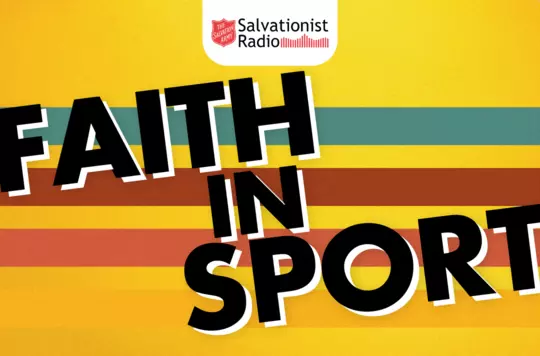
Join Rob Moye as he meets people who connect their passion for Jesus with their love of sport.
Latest articles and media
-
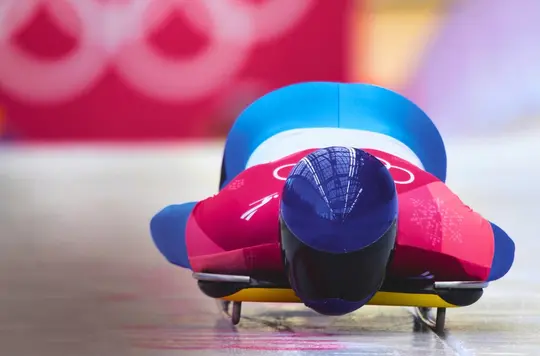
Winter Olympics: Finding true strength in faith
Amid the 2026 Winter Olympics and Paralympics, Justin Gibson reflects on perseverance, trust and resilience.
Viewpoint | Sports mission28 Feb 2026 -
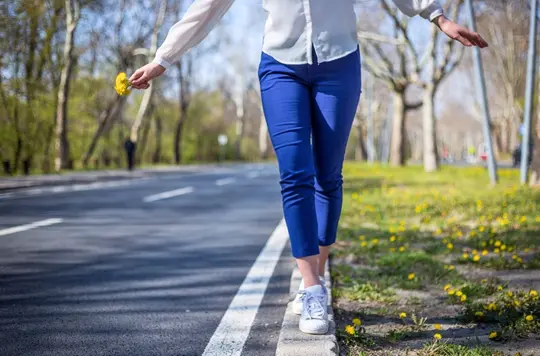
New year, new you? How to find balance at the start of the year
Rob Moye encourages us to start the new year from a place of gratitude and rest.
Viewpoint | Sports mission17 Jan 2026 -

Ep 9: Callum McKenna and Karl Westwood on Running, Accountability and Getting Started
Captain Callum Mckenna (William Booth College) and Karl Westwood (Bromley Temple) talk to Rob about their new-found love for running and how it has transformed body, mind, and spirit. Plus, Coach's Corner with Charlotte Tanner.
Podcast | Faith in Sport11 Dec 2025 -

Celebrating unsung heroes
As the 2025 Women’s Rugby World Cup continues, Lieutenant Rachel Furlong reflects on how we all play a part on the pitch.
Sports mission | Viewpoint13 Sep 2025 -
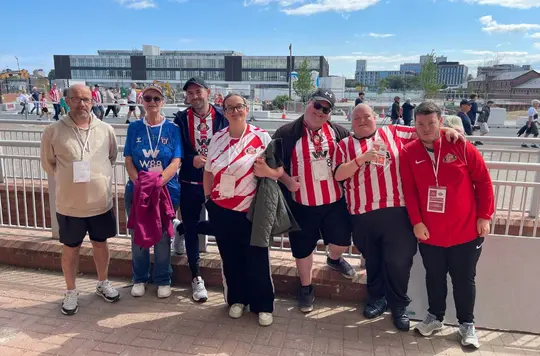
We'll support you evermore
War Cry’s Philip Halcrow finds out how a Salvation Army centre for people experiencing homelessness has been helping its residents by linking up with Premier League club Sunderland.
Feature | War Cry16 Aug 2025 -
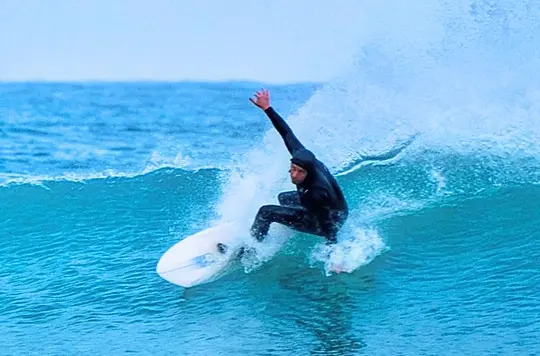
Surf church: Salt, sand and Scripture
Captain Nathan Loxley (St Ives) talks Surf Church with George Tanton.
Sports mission | Interview26 Jul 2025 -
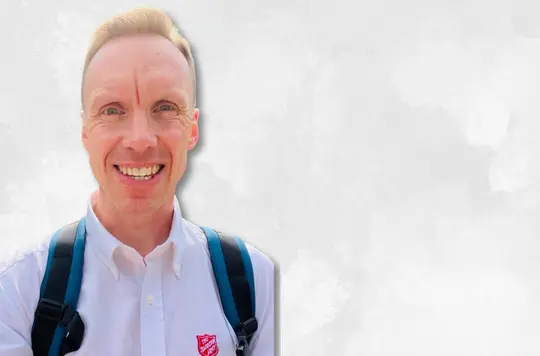
Sports mission: How are sport and faith connected?
Sports Mission Specialist Rob Moye (THQ) talks about sports mission.
Sports mission | Interview26 Jul 2025 -
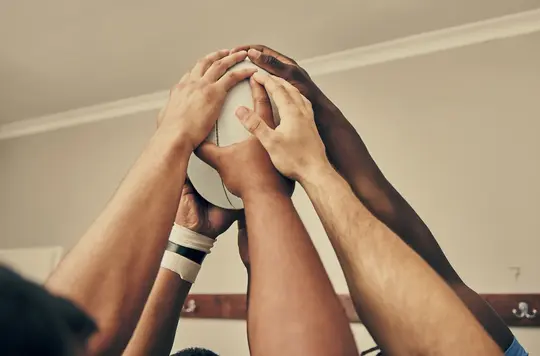
The British and Irish Lions: An example of unity
As the British and Irish Lions continue their Australia tour, Major Andrew Vertigan celebrates their example of unity.
Sports mission | Viewpoint26 Jul 2025 -

Ep 8: Lizzy Kitchenside on Football, Running and Sharing Joy
Lieutenant Lizzy Kitchenside (Harold Hill) talks to Rob about the community found in football and the joy of conquering the London Marathon, plus Coach's Corner with Charlotte Tanner.
Podcast | Faith in Sport25 Jul 2025 -

Bonus Ep: Faith in Sport Reflection
A special devotional episode from Majors Adrian and Clare Allman (West Midlands DHQ) focusing on three essential themes for holistic wellbeing: faith, hope and love.
Podcast | Faith in Sport10 Jul 2025 -

Women’s Euro 2025: Be more than a spectator
As the Women’s Euros kick off, Major Jo Moir encourages everyone to stand with women and girls.
Viewpoint | Sports mission5 Jul 2025 -
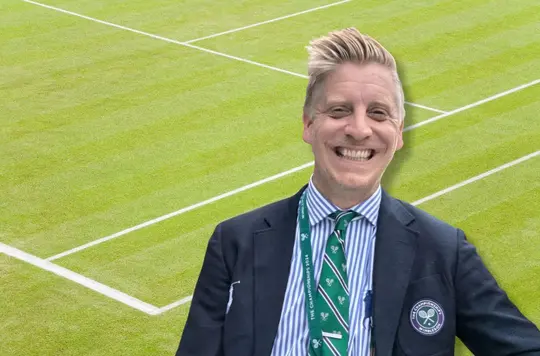
Let the games begin!
War Cry’s Claire Brine talks to Wimbledon official George Martin ahead of this year's championships.
Feature | War Cry28 Jun 2025
